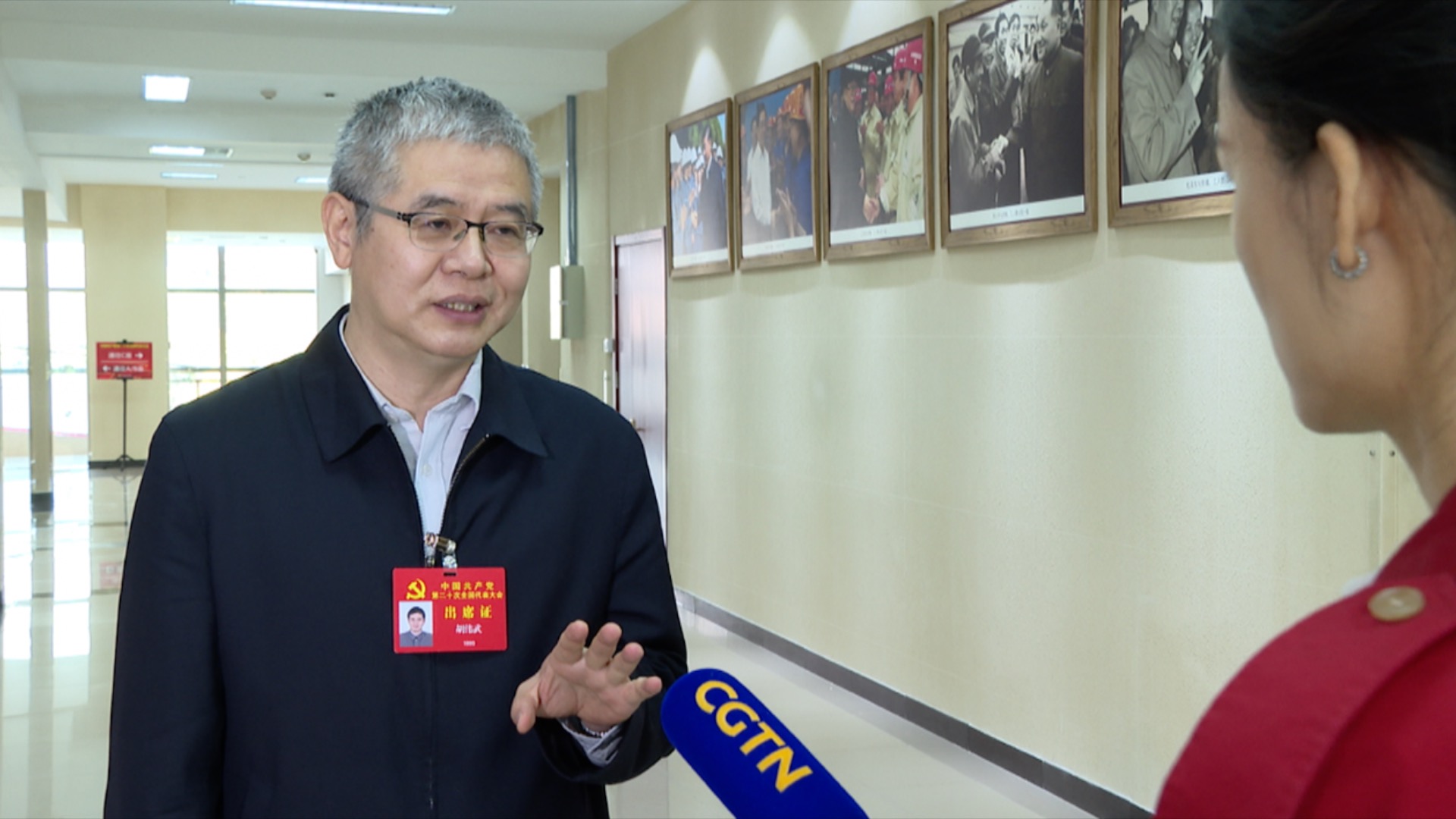02:53

A delegate to the 20th National Congress of the Communist Party of China (CPC) has called for more efforts towards developing self-reliant computer technologies.
According to Hu, China's IT industry has been mainly built on two foreign technology platforms- the first being "Wintel," a combination of Microsoft Windows and Intel chips, and the second is AA, a mix of Arm-based chips and Android. "China should develop its own system. I think there must be determination to make a breakthrough," Hu said.
After the U.S. blacklisted China's communication giant Huawei, many Chinese enterprises started to invest more into domestic technology so that they don't depend on foreign companies. The CPC has listed "greater self-reliance" in sci-tech as one of the main objectives for the next five years.
"Our information industry should focus on three pain points and blocking points. Those are instruction sets, core IP of various chips and the production process," Hu said, adding that his understanding of "self-reliance" in the report by Xi Jinping is to break through these three blocking points.
Hu said China should be "self-reliant to the end," which means that China's dependence on products should only be limited by human and natural resources, not technologies.
"For instance, the instruction set. That is the root technology. All other systems like CPUs, operating systems and various applications, depend on it," he told CGTN. "When we develop our own instruction set, we don't have to worry about other systems – we are completely self-reliant."
Hu and his company have been developing a new kind of generic chip architecture called the LoongArch, taking a different path from other Chinese chip designers who buy licenses from U.S.-based Intel or UK-based Arm.